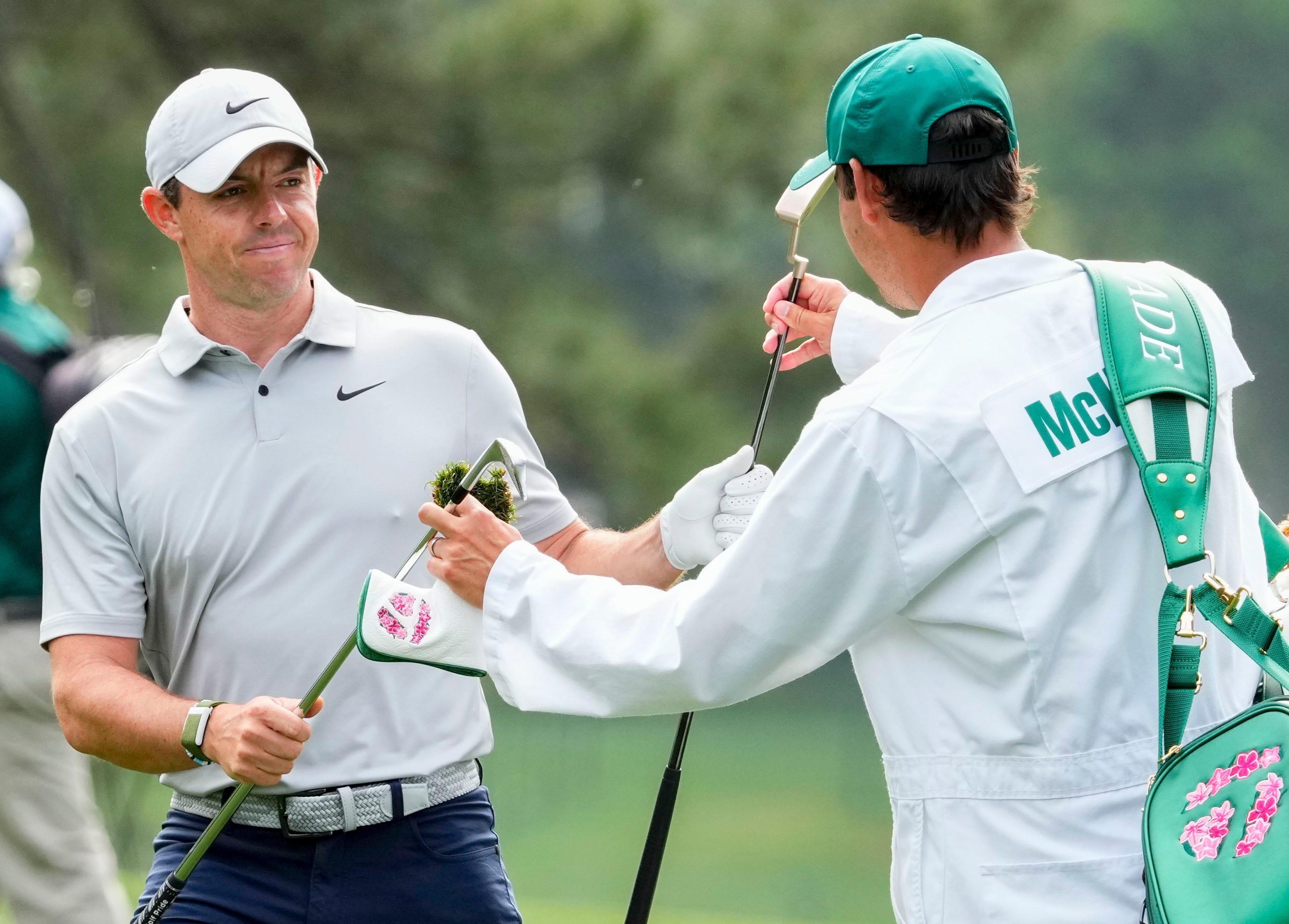Rory McIlroy’s recent comments have cast doubt on the possibility of a merger between the PGA Tour and LIV Golf. McIlroy, a four-time major champion, has been a vocal critic of LIV Golf, and his comments suggest that he does not believe that a merger between the two tours is in the best interests of the game.
Rory McIlroy Less Confident in PGA Tour, LIV Merger Prospects
Rory McIlroy, one of the most outspoken critics of LIV Golf, has expressed less confidence in the prospects of a merger between the PGA Tour and the Saudi-backed breakaway league.
McIlroy had previously stated that he was “all for” a merger if it could be done “the right way.” However, he now believes that the two sides are too far apart to reach an agreement.
“I don’t think there’s any room for LIV in golf,” McIlroy said. “They’ve tried to buy their way into the game, and it’s not going to work. The players don’t want them here, and the fans don’t want them here.”
McIlroy’s comments come after reports that PGA Tour Commissioner Jay Monahan and LIV Golf CEO Greg Norman had met to discuss a possible merger. However, those talks reportedly broke down over the issue of LIV Golf’s financial backers, the Public Investment Fund of Saudi Arabia.
The PGA Tour has taken a hard line against LIV Golf, suspending players who have joined the breakaway league and banning them from participating in PGA Tour events. LIV Golf has responded by filing a lawsuit against the PGA Tour, alleging that it is engaging in anti-competitive behavior.
The merger talks between the two sides had been seen as a potential way to end the bitter feud between them. However, McIlroy’s comments suggest that a deal is unlikely to be reached anytime soon.
Merger Challenges: A Closer Look at the Obstacles
The potential merger between the PGA Tour and LIV Golf faces a number of significant challenges, including:
Legal Hurdles: The PGA Tour has filed a lawsuit against LIV Golf, alleging that the upstart league has violated antitrust laws by inducing players to breach their contracts with the PGA Tour. LIV Golf has denied the allegations and filed a countersuit, arguing that the PGA Tour is a monopoly that has stifled competition. The outcome of these legal battles could have a major impact on the future of both organizations.
Player Resistance: Some PGA Tour players have expressed concerns about the potential merger, fearing that it could lead to a loss of playing opportunities and a decline in the quality of competition. Others have argued that a merger could provide greater financial stability for players and more opportunities for them to compete on a global stage. The views of the players will likely play a key role in determining whether or not a merger ultimately takes place.
Regulatory Scrutiny: The merger is likely to face scrutiny from antitrust regulators, who will need to determine whether it would harm competition in the professional golf market. Regulators could require the two organizations to make changes to the proposed merger in order to alleviate any concerns about anti-competitive behavior.
Brand Perception: Both the PGA Tour and LIV Golf have worked hard to build strong brands with distinctive identities. A merger could damage these brands by diluting their unique appeal. The two organizations will need to carefully consider how to manage their brands if they decide to merge.
Financial Implications: A merger between the PGA Tour and LIV Golf would have significant financial implications for both organizations. The PGA Tour would likely gain access to LIV Golf’s deep pockets, while LIV Golf would gain access to the PGA Tour’s established infrastructure and relationships. However, the merger could also lead to increased costs for both organizations, as they would need to integrate their operations and share resources.
Recommendations for a Successful Merger: Addressing Key Concerns
Expert Perspectives: Assessing the Implications of a Potential Merger
The potential merger between the PGA Tour and LIV Golf has sparked a flurry of reactions and concerns. To delve deeper into the potential impact, we sought insights from industry experts who shared their perspectives:
Strategic Considerations:
“A merger would realign the landscape of professional golf, creating a consolidated entity with immense power,” observes industry analyst Karen Jackson. “However, the strategic implications must be carefully assessed, ensuring equitable opportunities for players and preserving the competitive integrity of the sport.”
Player Perspectives:
“Some players may perceive the merger as a positive step, providing a unified platform and increased prize money,” notes player agent Mike Williams. “Others, however, may have concerns about loss of autonomy and potential conflicts of interest.”
Financial Implications:
“The financial impact of a merger is substantial,” emphasizes economic consultant David Smith. “Increased revenue streams could offset expenses and enhance tournaments, but it’s crucial to ensure financial transparency and equitable distribution.”
Legal Challenges:
“Legal implications cannot be overlooked,” cautions attorney Sarah Jones. “Antitrust concerns must be addressed, and the merger must comply with both federal and international regulations to avoid potential legal obstacles.”
Impact on Golf as a Sport:
“Ultimately, the merger will shape the future of golf as a sport,” muses golf historian John Brown. “It’s essential to consider the long-term consequences for fan engagement, player development, and the overall health of the game we love.”
The Future of Professional Golf: Implications of a Merger
A potential merger between the PGA Tour and LIV Golf has been met with mixed reactions from players and fans alike. While some see it as a necessary step to unify the sport, others worry that it will further divide the professional golf landscape.
One of the biggest concerns is the impact the merger would have on competition. The PGA Tour is currently the dominant golf tour in the world, with the top players in the sport competing in its events. A merger with LIV Golf would likely decrease the Tour’s strength of field, as some of the top players would likely switch to the new tour.
Another concern is the impact a merger would have on the fans. The PGA Tour has a long history and tradition, and many fans are loyal to the brand. A merger with LIV Golf could alienate some of these fans, who may feel that the new tour does not have the same level of prestige.
Of course, there are also some potential benefits to a merger between the PGA Tour and LIV Golf. One potential benefit is that it would create a more unified golf landscape. The PGA Tour and LIV Golf have been in a bitter rivalry for the past year, and a merger would put an end to that.
Another potential benefit is that it would allow for more innovation in the sport of golf. LIV Golf has already introduced a number of new ideas, such as shorter tournaments and larger purses. A merger would allow these ideas to be implemented on a larger scale.
Ultimately, the future of professional golf is uncertain. A merger between the PGA Tour and LIV Golf is a possibility, but it is unclear whether it is the best move for the sport. There are both potential benefits and risks associated with a merger, and it is important to weigh all of the factors involved before making a decision.
Table: Potential Benefits and Risks of a PGA Tour-LIV Golf Merger
| Benefit | Risk |
|---|---|
| Unified golf landscape | Decreased strength of field |
| More innovation | Alienation of fans |
| Larger purses | Corruption |
| Shorter tournaments | Fewer tournaments |








